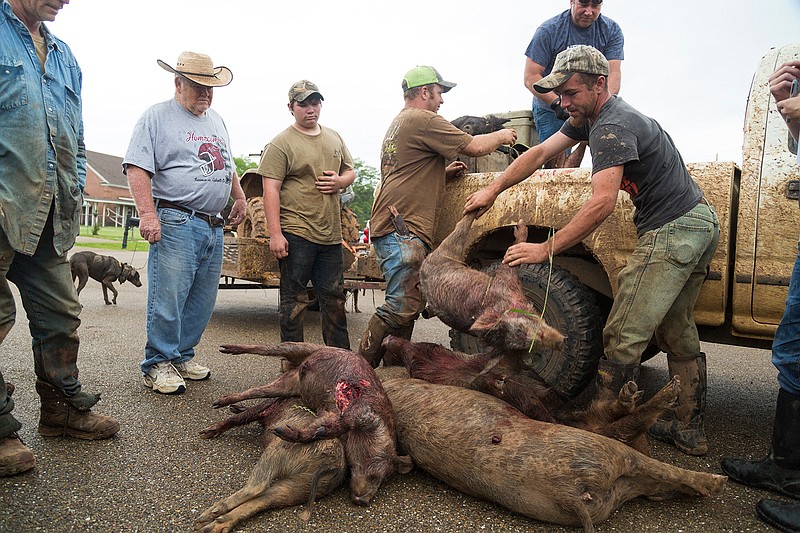The Little River Chamber of Commerce recently sponsored a feral hog hunt during the Whistlestop Festival with 20 hunters killing 35 wild hogs within 24 hours.
The majority of the hog hunters found an abundance of hogs along the banks of the Red River in Little River County.
"The hunt helped to reduce the feral hog population for farmers and ranchers, but they multiple so fast you can't get ahead of the hogs," said Fonda Hawthorne, the Little River Chamber of Commerce executive director. The hog hunt was limited to private property where hunters received permission to hunt.
"The hunters got rid of the carcasses anyway they wanted to," Hawthorne said.
Troy Lewis, who helped organized the hunt, has killed as many as 400 hogs during a year. "I've gotten older and don't hunt as much as I use to. I try to help keep the hogs off of a friend's place.
"I've seen as many as 15 to 20 hogs at a time swimming across the Red River," said Lewis, who works at Ash Grove Cement west of Foreman, Ark.
He suggested a bounty for hogs killed in a game farm where hunters pay to hunt and pay "so much per pound per hog."
Unless there is a bounty, it's going to be tough to control or reduce the hog population, he said.
The hogs produce offspring rapidly.
The sows produce litters with an average of six piglets starting at 6 months old and have few predators after reaching maturity, according to a report from the University of Arkansas Cooperative Extension Service.
The feeding and wallowing behaviors create a number of problems, including crop loss, pasture damage, wildlife habitat loss, water pollution because of sedimentation, transmission of E. coli and disease transmission to livestock and, in rare cases to people.
Non-native feral hogs compete directly with native wildlife species for limited food supplies and disturb habitat. They consume small mammals and reptiles, the young of larger mammals such as fawns and the eggs and young of ground-nesting birds such as bobwhites and wild turkeys.

